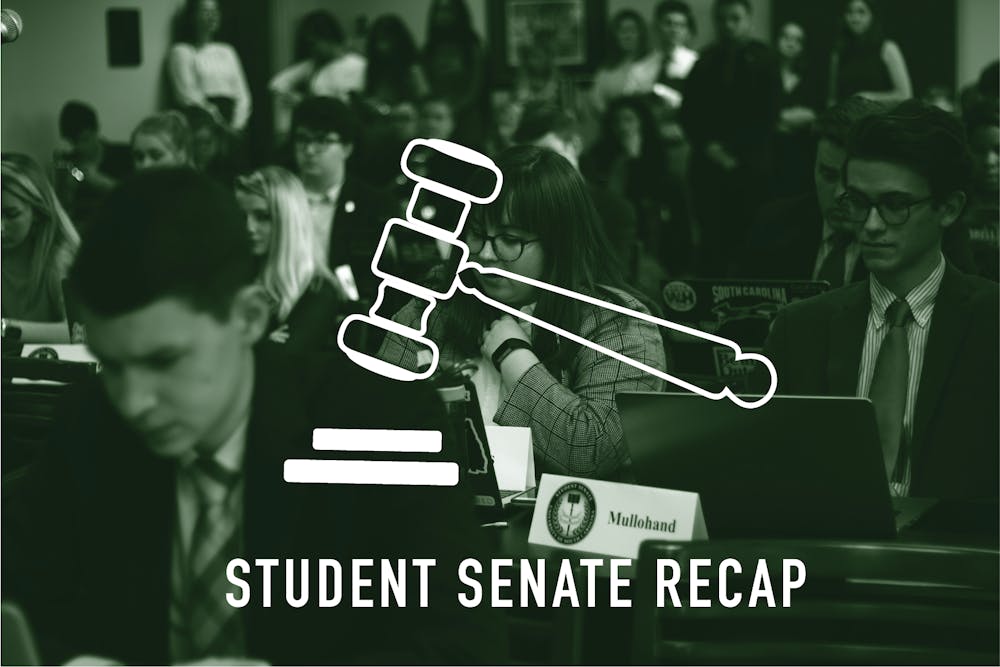The student senate introduced a resolution Wednesday to ensure that its members follow codes to fill senate seat vacancies.
The resolution, introduced by the judiciary committee and senator Nash Deason, clarifies that nominees should not be voted on without an interview by the powers and responsibilities committee.
If the resolution passes, the office of the student senate must acknowledge the resolution and commit to good faith execution of the section of the Student Government codes that outline the process of appointing senators to vacant seats.
Last week, Speaker of the Student Senate Noah Glasgow appointed three student senators to vacant spots. Deason was the only nay vote.
Deason said during the session that he disagreed with Glasgow’s interpretation of the codes, as Glasgow interviews the nominees, not the powers and responsibilities committee.
“I was one of the few, after election season, that were nominated, and at the time, I understood the codes to allow this power (to the speaker of the student senate)," Deason said. "In hindsight, I see that it's not explicitly outlined in the codes and in fact might be spoken against in the codes."
Glasgow said he talked to former Speaker of the student senate Morgiana McDevitt, former Pro Tempore Morgan Mcdonald and members of the previous senate judiciary committee about his powers within the codes before nominating and interviewing people for student senate.
“I don't believe any codes were violated. But, again, I'm not going to comment about what I think about specific legislation either for or against it, but I was acting based off of what I read, what I interpreted and what I was told by former people that held this office," Glasgow said. "Nothing was done in bad faith by any party, judiciary or myself.”
Glasgow also noted that some of the nominees had been interviewed by the powers and responsibilities committee, but without the necessary quorum of four people present to hold a formal vote.
Student senator Ian Herd introduced a different bill that would allow the speaker of the student senate to do interviews instead of the powers and responsibilities committee with the permission of the committee if at least 10% of seats are vacant. Amid the ongoing discussion on nominating senators for vacancies within the codes, Herd also introduced a bill to restructure the codes themselves.
“When I had ideas for legislation to impact real students, I looked at the codes and I saw they were disorganized and haphazard," Herd said. "I think you have to walk before you can run. So if our codes aren't organized, how can you do anything meaningful?"
The student senate also passed a bill that changes the code to allow student senators to be on a maximum of three committees instead of two.
Na’Kiya Tye, chairwoman of the powers and responsibilities committee that introduced the legislation, said senators who are passionate and want to be on more committees should be allowed to join them.
Tye emphasized the necessity of patching holes in or repairing the code so it best serves the public.
“We're making sure the student body’s voice is being heard to the best of our ability,” Tye said.

